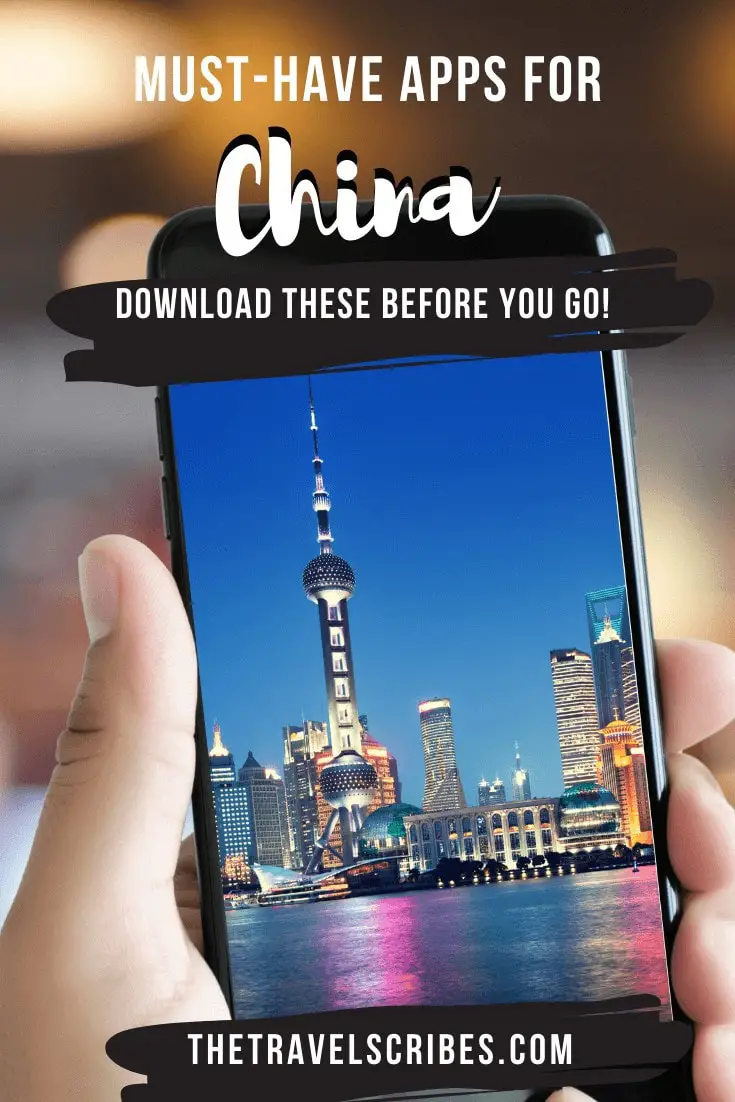So, we’re guessing that you’ve arrived on this post as you’re planning a trip to China in the near future, or are already in the country and looking for some much-needed advice? We recently spent a month exploring the corners of this fascinating country and, after downloading what feels like hundreds of different programs, we have a tried and tested collection of the best apps for China.
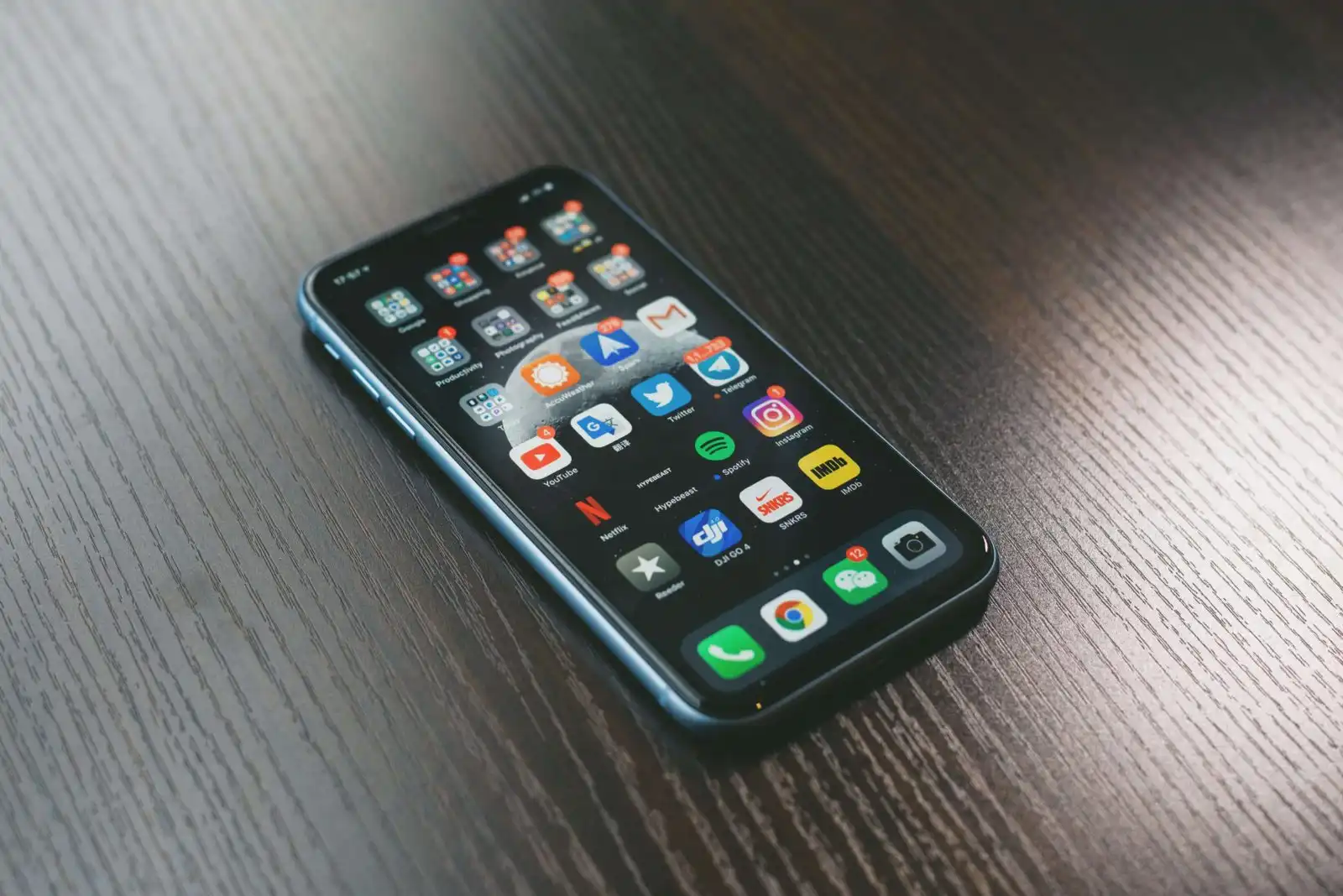
China is unlike any western country in that the selection of apps are entirely different but, beyond this, the Great Firewall of China means many of the apps you know and love don’t work in the country. So, to stay connected and also be able to move around with ease, you must download a whole new folder worth of apps for everything from taxis to translation, maps to social media.
Read next: Two week travel guide for China – all you need to know!
Skip ahead
What are some must have apps for China?
We’ve gone into detail below on the important apps that you must download, ideally prior to arriving in China. Forgot to do it before you arrived? We’ve got a few tips for that to. Either way, here is our definitive list:
- VPN – ExpressVPN, NordVPN
- Maps apps – MAPS.ME, Baidu Maps
- Travel apps – MetroMan, DiDi, China Train Booking, TripIt
- Accommodation apps – Agoda
- Translation apps – Google Translate, Waygo
- Social media apps – Wechat
- Restaurant apps – Dianping, Bon!
- Other key apps – Bing, Air Quality Checker, XE Currency Converter
So, what’s the most important app for China?
Without a doubt, the most important app to install before you head to China is a very decent VPN. Without a VPN you won’t be able to access many of the apps that you use on a daily basis. Access to Facebook? Nope. WhatsApp? Nope. Google maps? Nope. Instagram? Nope. You get the picture, right? You’ll be totally cut off from most of the day to day apps that you use on your smart device.

And what’s more, you won’t even be able to access the likes of Google Play Store or many of the apps on the Apple Store in China. Don’t worry if you’re already there – we’ll come on to that shortly.
That means that your essential app for visiting China is a VPN.
And, no, it’s not illegal but rather just ‘frowned on’ by the Chinese government, so you are safe to get on. A VPN (or Virtual Private Network) will mask your IP address to make it seem like you are in another country, essentially unlocking all the apps you could usually use in the country, whether it be the US, UK, or really anywhere.
There are a number of free or low-cost VPN providers but it’s highly recommended that you put some money towards it and choose one of the big two players: ExpressVPN or NordVPN.
We actually used both and can give you our first-hand experience of using both VPNs across our phones, kindles and laptops. What’s more is that we travelled quite extensively across China during our month there, so this recommendation is from the experience of relatively long term use, across a number of different cities and regions in China.
ExpressVPN: This one just pips NordVPN in terms of quality of access that you get in China. ExpressVPN had the best speed in it’s different locations and the service was more consistent across the cities and towns we visited. It’s the world’s number one VPN for a reason, and we are very happy with them, not just in China but on an ongoing basis.
Get ExpressVPN here – they have a 30 day money-back guarantee if you don’t agree with our personal recommendation!
NordVPN: NordVPN’s speeds were a little slower and their connectivity was patchy in places like Fenghuang, so is best used in major cities. What really garnered them points though was their impressive customer support. Their technical support (it’s 24/7 with multiple contact options) was fantastic and if you have a difficult setup or value having quick response times, we’d recommend NordVPN.
Click here to explore NordVPN’s pricing options.
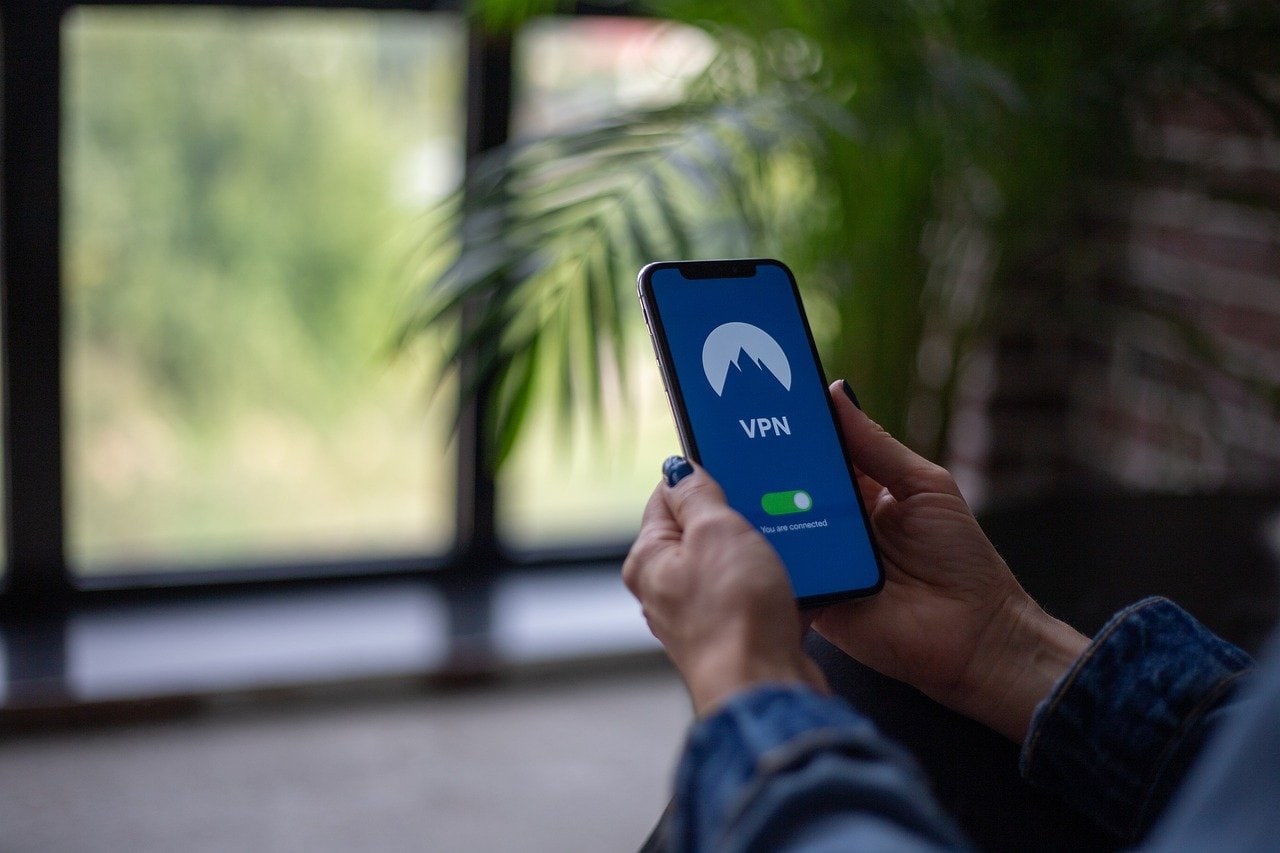
What do you do if you’re already in China without a VPN?
This can be a sticky situation. Essentially, China has its own version of nearly all apps for everything. And on the China versions of Google Play and the Apple Store, you can’t download the VPN when you are already in China. So the big question if you are already there is how can you get a hold of a VPN?
The simplest answer for Google Play (so on Android), is to get hold of the APK file for either of the VPNs through their website. You might then need to send it to your phone via a file sharing service, such as wetransfer.com before uploading the APK to your phone, opening the VPN app, switching it on and voila!
For IOS, it’s slightly more complicated, as you either need to convert the APK file into a IPA file or ask your provider for the manual configuration instructions.
Once you’ve got the VPN, everything else is easy – just connect to your home country and you can use Google Play or Apple Store with ease to get the rest of the apps you need. Here’s a more in-depth article on the process, in case you need step-by-step instructions.
Side note: James used this method since he actually purchased a new phone in China (shout out to Xiaomi, as the phone is incredible!), and so had no apps at all. He was able to follow this guide to get everything installed; and he’s definitely no tech expert!
What are the most important travel apps for China?
Maps
So as mentioned above, without a VPN you’re not going to be able to use Google Maps in China. It just doesn’t work. We also had a few issues linking between locations on Tripadvisor and Google Maps. We’re still a little unsure as to whether this is a Google Maps issue or Tripadvisor but the result was the same: we struggled to find locations.
So, our favourite travel map app for China (and beyond) quickly became Maps.me.
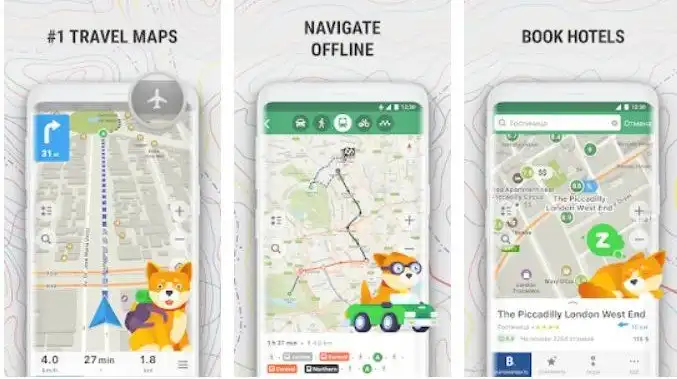
You are able to download regional and very detailed offline maps which means that even if you have no internet, you are always able to find your way around to all those famous China landmarks! It works on GPS positioning, which doesn’t require 3G connectivity. We are a huge fan of Maps.me as it just gives you a bit more flexibility, and is unique in that it is created by travellers, for travellers, so you can also add in helpful points of interest or attractions into the app, plus ratings!
If you have Apple Maps, you’re in a little more luck, that it does work in China. However, Apple Maps doesn’t have the same level of detail and so we’ve never been huge fans of this maps app anyway.
The final option for getting around would be Baidu Maps, although we didn’t realise when we downloaded it that it doesn’t have an English version (or one that we could work out how to use), so it was pretty much useless unless you understand Chinese characters!
Travel on the metro
We could probably bang on for a couple of hours on how much we love travelling on the China Metro or underground. It’s clean, efficient, very cheap and super easy to use. The only underground or tube equivalent that comes close to the ones that we experienced in China is Singapore. And seeming that Singapore’s metro network is world-renowned, that’s high praise indeed.
What’s more is that China has a great subway app, which is handily in English, called MetroMan to help you get around town (Google/Apple).
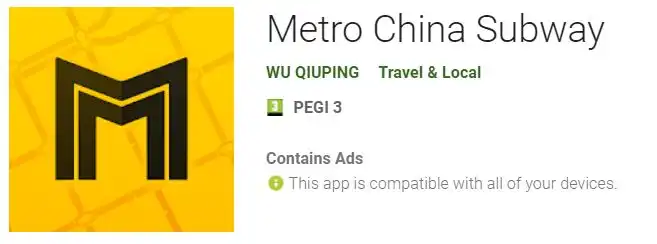
The metro is available in all major cities in China and nearby Hong Kong, like Beijing, Shanghai and Chengdu, so make sure this one is on your list of must-have apps for China.
Picking up a taxi
So Uber (and our Southeast Asia favourite, Grab), doesn’t work in China. However, China does have their own version which basically works the same – DIDI Chuxing.
Although we hardly used taxi’s in China – because the metro was so good – it’s a really excellent app for China, especially if you’re out late at night or wanting to head to the airport early. There is an English version which you can download from the US stores or in China directly. However, if like us, you’re on the UK store (or other regions), you’ll have to download the APK version.
You can load your credit card details directly onto DIDI Chuxing, and so don’t have to worry about cash for your trips. And what’s even more handy is that the app translates your conversation with the driver directly.
Booking train travel
For China travel we particularly loved using the trains. So for train travel in China, we’re actually going to push you away from an app!
But before we get onto that, a quick insight into train travel in China. The trains that we took were extremely clean, fast (we took some of the high speed/bullet trains that can go over 400km/h), on time and comfortable. So it’s a great option to consider, especially if you’re not that keen on flying.

So, why are we not suggesting that you use an app in China for train bookings? Well, that’s mainly because we had such a great experience booking directly with China Highlights. It’s handy to know that tickets go on sale for trains 30 days in advance and some trains can become fully booked, so booking on an app when in China (or even worse just turning up at the station) may not be the best idea.
If you do want to book directly with the China trains, it’s a pretty simple process, however, you will need to have a telephone local number and Chinese ID. So not helpful for most travellers.
Once you have booked your trains, what’s really great is that you’re able to pick them up from any station in China (it doesn’t matter what route you are taking). We had 10 different train routes booked and managed to pick up all our tickets at a mainline station in Beijing.
On the other hand, if you are looking for an app for China train travel, we have also read really good reviews on China Train Booking. It’s owned by China Highlights and so provides the same but in a handy app. Although we haven’t personally used this service.
Create a trip itinerary
Not strictly just for China, we love to keep all our important travel information in one place – from hotel bookings, through to train reservations and airline tickets. And that’s where Tripit comes in super handy. This nifty little app automatically pulls in your bookings and reference numbers from email confirmations and then puts it all together in one trip itinerary.
If you like to be organised, and want to create the perfect China itinerary it’s a no brainer.
The best accommodation app for China
Most travellers will use one of three websites or apps for their travel accommodation bookings: Agoda, Hostel World and Booking.com.
There is however, an easy winner when it comes to us for the best accommodation booking app for China, it has to be Agoda.
As far as we could tell, there was a far superior selection of property options on Agoda than on either of the other two. We also love the loyalty programme as we get Agoda cash to spend on future bookings. When you’re travelling full time that is an added win!
Check out the latest hotel options with Agoda here!
What’s the best translation app for China?
So, alongside VPN, we’d rank having a very good translation app as imperative for travelling in China, especially if you’re not keen on learning a second language!
English isn’t widely spoken by Chinese people and so having a translation app for China is a must.
If you are using a VPN, then you definitely can’t go wrong with Google Translate. Whether it’s directions, ordering the right dinner or checking something with a shop assistant before you make that purchase – it’s essential. We actually used it to get the lowdown on everything to do with the latest smartphone that we purchased.
If you don’t have a VPN or are also struggling to get internet, no problem – you can also download ‘simple’ Chinese, along with another 58 odd languages, so you’ve always got a translator in your pocket.
Another good option is Waygo, an award-winning app that translates menus and signage for you – just point and translate. It works without an internet connection, which is super helpful.
Are there any other social media apps for China that you should have?
Most importantly for many of you, it’s a relief knowing that as long as you have the VPN turned on, you’ll still be able to access Facebook, WhatsApp and Instagram, although obviously depending on the internet speed you can get and the VPN used, these can be a bit slower than you are used to…
However, it’s definitely worth also downloading the Chinese chat app, WeChat (Google/Apple).
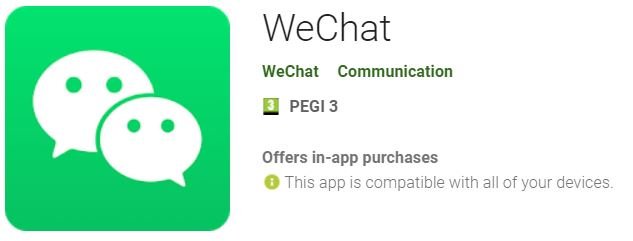
This is China’s app equivalent of WhatsApp and so will allow you to stay in contact with people you meet in China. Plus you could even make payments through it, if you link your credit card to the app. You’ll realise in China that a lot of things are paid for via apps or smartphones, but don’t fear – cash is still accepted everywhere!
Is there a restaurant app for China?
Yes and no. Firstly, don’t expect Tripadvisor to be your app of choice, even on VPN. Firstly, we found the quality of reviews to be poor and the number of reviews to be too low – it’s just not a quality source of restaurant information in China.
The biggest restaurant app in China is Dianping but, unfortunately, it’s not available in English. It’s a veritable feast of restaurant information so a quick tip is to find the wording for what you want i.e. Cat Café, get the Chinese characters from your translation app and then input that into Dianping. The results will show you the distance, star rating and heaps of photos – you don’t need English to view photos!
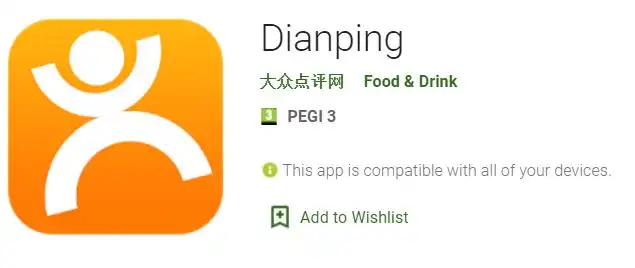
If you want an English app, then the Bon! App works well in the major cities. It includes English maps, reviews and photographs as well as a Discovery section which allows you to find highly-rated restaurants in your area. Apple
Are there any other essential apps for China?
Search Engines
It might sound crazy, but many people don’t realise that Google Search won’t work in China either, many of the other big search engines that you are used to – Ask, Duck Duck Go, Yahoo – they all won’t work either. So you’re best setting your default search engine to be Bing while you’re in China (and not using a VPN for that).
Air quality checker
Although the air quality in China is generally improving, especially compared to a few years ago, there are definitely days in some of the bigger cities where we could feel slightly tighter lungs than we are used to. And if the air pollution is bad at a particular time, it’s not a bad shout to invest in a face mask to wear when out. Don’t worry, if the air quality is bad, a lot of people will be wearing them so you won’t feel out of place.

So, what’s the best app to use to check the air quality in Chinese cities? For us it’s definitely Air Visual.
Currency converter
For us there is only one app to track what the CNY (or RMB) is doing against the £, € or $ and that is XE.
We’re always on a budget while travelling, so it is the perfect tool for a rough estimate on costs, which helps us keep a track on our spending!
What are the best credit cards for China?
We’ve done a lot of research when it comes to both the best credit card and debit card for travel. And were really happy with the choices that we made for these credit cards when it came to traveling in China – as we had absolutely no trouble at all when it came to purchasing goods or withdrawing cash. Note that most of these recommendations are geared to UK travellers.
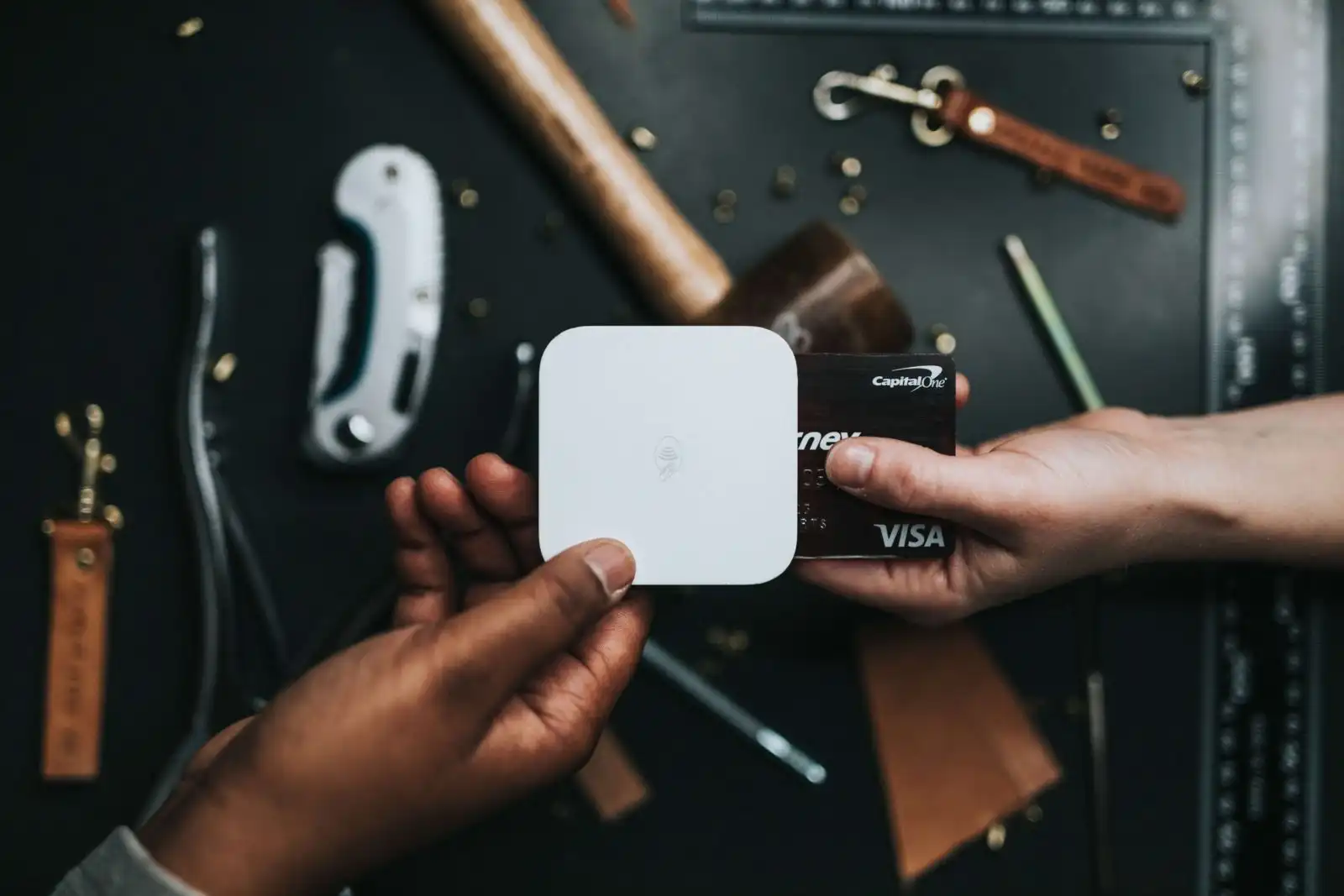
Best card for withdrawing cash at an ATM
After months on the road, we can definitely recommend Starling (it’s a Mastercard/debit card) as the best piece of plastic that we decided to get our hands on before we left. We did a lot of research on the benefits of Starling against bigger well-known competitors like the Revolut card, Monzo or Caxton and felt that Starling was the best of the bunch.
This is since Starling offers you unlimited ATM withdrawals at no charge and their currency conversion is one of the most competitive on the market.
Best credit card for use overseas
Again, one for the UK readers. We have loved our Halifax credit card. Unlike other major credit cards, you don’t pay foreign transaction or usage fees and you also don’t pay to withdraw from an ATM, if you want to use it like that.
It doesn’t have a loyalty system but we find that the savings we make on transactions far outweighs this.
What is the best China mobile phone service provider?
There are 3 main providers in China for mobile phone networks, and all offer a pretty good service. However, we have been advised that China Telecom isn’t compatible with non-Chinese phones. So if you don’t have a Xiaomi or Huawei, then best go for China Unicom or China Mobile.
Ideally you should get your sim card at the airport when you first land but, if not, there are stores all over town, and generally the store assistants are really helpful in sorting out a SIM card for you. But don’t forget that you need to take your passport with you to register. The cost for a SIM is about 100 RMB (14 USD/ 11.50 GBP) for 30 days 10GB data, 300 minutes local calls and a bunch of SMS’s.
Insider tip: We actually travel with a WiFi hotspot device, called a GlocalMe (this is Chinese-made, so China Telecom compatible) which we couldn’t recommend more highly. Not only can you purchase global internet bundles, it also has two SIM card slots. Meaning that we can purchase local SIM cards on internet only packages, but not have the concern about always changing our telephone numbers. A very clever device.
Need some China city guides?
We’re guessing that if you’re already in China or planning to head there relatively soon, you may just want some China city guides to help you prepare for your trip, especially now that you have all the apps for China that you need! We have a great itinerary for Beijing and also what to do in Xi’an if you’re there for a few days.

Recommended: Why you should go to Zhangjiajie National Park.
Do also get in touch here or leave some comments below if you have any other queries about our favourite places to go in China and what we think are absolute must do’s!
Frequently asked questions: apps for China
What websites and apps does China block?
This is definitely not a definitive list, but here are a few of the websites and apps that are blocked in China:
- Social Media: Facebook, Twitter, Instagram, Pinterest, Snapchat, Tumblr, Flickr, WhatsApp, FB Messenger
- Website or Blogging related: Blogspot, WordPress.com (WordPress.org works), Blogger, ShutterStock (and many other image sites)
- Anything Google: Google Play (so no downloads), Gmail, Google Drive, Google Docs, Google Calendar, Google search
- Streaming Services + Video: YouTube, TikTok, Vimeo, Netflix, Amazon Prime, Spotify (and many more…)
- News related: Pretty much all the big ones are no no’s i.e. The New York Times, The Financial Times, The Wall Street Journal, The Economist, Bloomberg, Reuters, The Washington Post
Is there an App store in China?
Yes – there are a few different ones. First up, Apple App Store has a version specifically for China. This is the go to place for anyone in China using Apple products or IOS operating systems.
Most of the big phone producers in China also have their own app store versions. If you buy a new Xiaomi, Huawei, Vivo in China, it will be preloaded with the corresponding app store, like the Chinese app store, Xiaomi App Store.
Then there are also other Android app store providers. Tencent App Store, Baidu App Store, China Mobile App Store.
What are the most popular apps in China?
The most popular China apps include:
- WeChat – the China version of WhatsApp has over 980 million active monthly users.
- Alipay – the number one payment app, has over 530 million monthly users.
- Taobao – part of the massive Alibaba empire has over 520 million monthly users.
- Baidu – the number one search engine in China. The mobile app has over 435 million monthly users.
- iQiyi – the largest streaming app in China has over 420 million active monthly users
- Weibo – China’s twitter has over 400 million active monthly users.
Want to save this for later? Then why not pin it…
